The women of Silingan Coffee believe in remembering and moving forward—years after Duterte’s war on drugs
Years after the murderous and controversial war on drugs of the previous Duterte administration, how have the victims’ surviving relatives been doing?
Sharon Tayactac got into coffee-making through a series of coincidences. As a patron at Baclaran Church in Pasay, she was encouraged by one of the parish sisters to get involved with a coffee shop for a cause that the Redemptorist Brother Ciriaco Santiago III was putting up, the proceeds of which were donated to the survivors of the Super Typhoon Yolanda. Despite having no prior coffee experience, she got the job and learned along the way how to roast beans and pour latte art at the cafe housed at the church bell tower.
Being a barista was a rewarding source of livelihood for her. It allowed her to earn while doing things she had never done before. But when the pandemic came, Sinirangan failed to brave the lockdowns and closed its doors in May 2021.
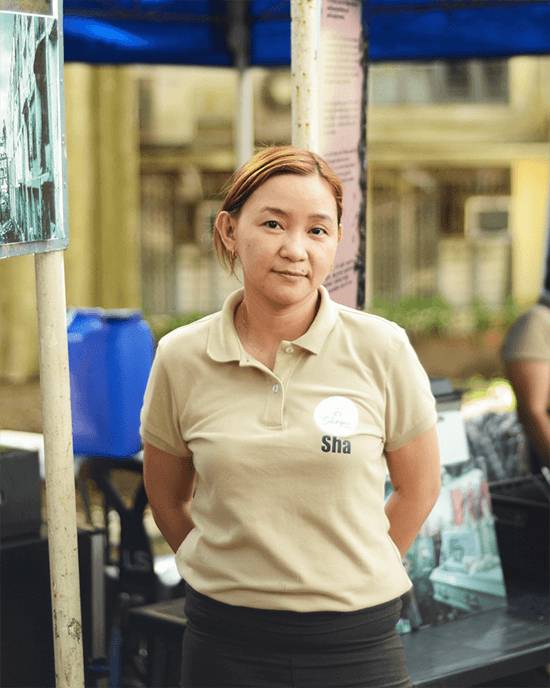
If there is anything Tayactac believes in, one must learn to move forward amidst adversities. “Sabi sa akin ni (Brother Santiago), magsa-start kami sa Quezon City,” recalls the head barista, who took on other jobs until the new cafe opened in October 2021. “Nabanggit niya sa akin na (ang) itatayo naming bagong shop ay regarding naman sa mga family (of victims of extrajudicial killings). Sabi ko, ‘Ay Bro, belong po pala ako.’”
The for-a-cause coffee shop from Baclaran is now Silingan, Bisaya for “neighbor,” speaking to their vision of “bringing back the Filipino culture of pakikipagkapitbahay and pakikipagkapwatao.” It has since found home at stall nine of the hipster enclave Cubao Expo, where they brew more than coffee. As its tagline suggests, it is also a place for stories and human rights.
Run by more than 30 staff—most of which are women—who are relatives of drug war victims, their walls have become a collage of the past years, a reminder of why they continue to remember and move forward. On their walls are slogans and calls for justice, posters belonging to their regulars and events on the war on drugs, and cutouts of their media features.
“Tuwing may pumapasok dito at parang naiilang, ang tanong ko lagi, ‘Ah, gusto nyo po bang malaman, bakit ganito 'yung aming mga design, mga decoration?’ Ayan, doon nag-uumpisa,” shares Nanette Castillo, one of the baristas at Silingan. “Nakakahanap ako ng mapag-uusapan kasi 'di ba, habang nagkakape ka, masarap 'yung may kakwentuhan.”
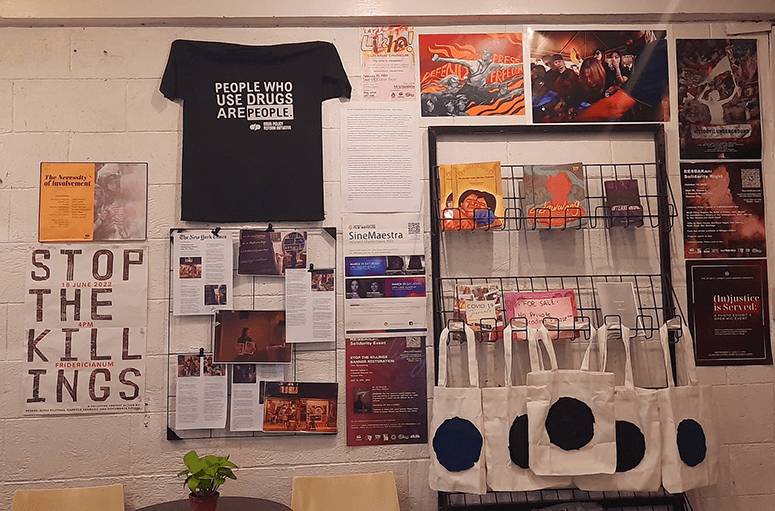
“Inaalam ko, ‘Alam niyo ba ‘yung nangyari, kung ano ‘yung feeling nung nagdaang war on drugs? Payag ba kayo?’ Inaalam ko para malaman nila: totoong namatayan kami,” says Castillo, whose son Aldrin was killed by unidentified assailants in 2017.
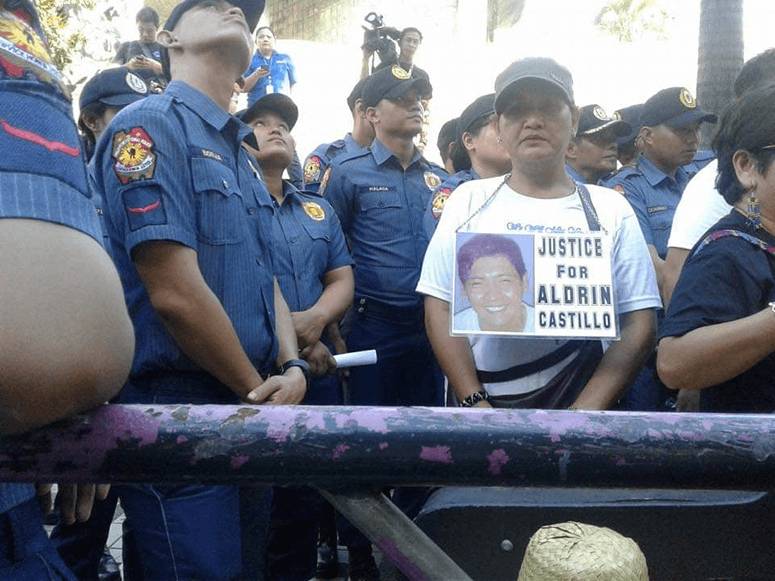
“Bukod sa magigising sila sa kape, magigising din sila doon sa katotohanan na hindi tama ‘yung pagpatay na ginawa ng nakaraang administrasyon.”
Over time, Silingan has built a community of regulars: artists, activists, filmmakers, and students who enjoy their coffee and the intimate atmosphere and conversations they share at their shop.
Tayactac is grateful for its patrons who have been spreading their coffee and stories. “Nung na-interview kami (ng New York Times), napalaking break n’on sa amin, sa totoo lang. Minsan, zero sales kami. May sales lang kami ng 500 pesos, okay na kami n’on. Noong umabot ng 1,000, Diyos ko, tuwang-tuwa na ako,” she shares.
Bukod sa magigising sila sa kape, magigising din sila doon sa katotohanan na hindi tama ‘yung pagpatay na ginawa ng nakaraang administrasyon.
“Nagpapasalamat din kami sa mga estudyante na hindi nagsasawang sumuporta sa Silingan. Minsan, wala kaming tao, tapos biglang may darating ng mga estudyante, tapos naghahakot pa sila ng iba,” she recalls. The coffee shop now has branches at universities in Katipunan and Taft, where they are usually invited to speak about human rights and their experience under the Duterte regime. Silingan holds pop-up stores in various locations as well.
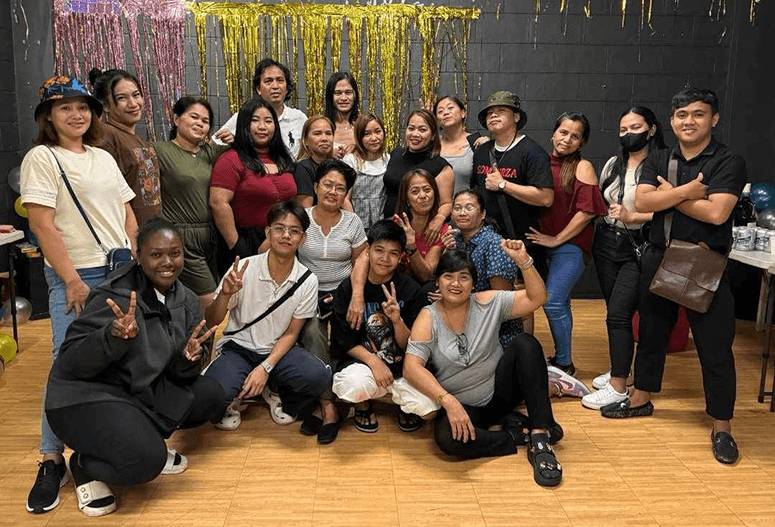
For the surviving relatives of EJK victims, moving forward could seem herculean. Dealing with grief and injustice caused by the death of their loved ones at the hands of state violence, most of them also suffer from material inequality.
“Talagang mga mahirap ‘yung pinatay. ‘Yung mga katulad ng anak ko na pinatay nila, napakadaming walang kalaban-laban,” Castillo says. Tayactac echoes the same sentiment: “Bakit may mga gano’ng tao na kung ituring ‘yung mga tao sa paligid nila ay hindi sila nagpapahalaga?”
Through their renewed chance at life as baristas, they are able to make a living. “Bukod sa advocacy, totoo naman (na) opportunity ito para kumita eh. Tulad ko, hindi naman ako graduate (ng college). Biro mo, sa edad ko na 'to, naging barista pa ako?” says Castillo.
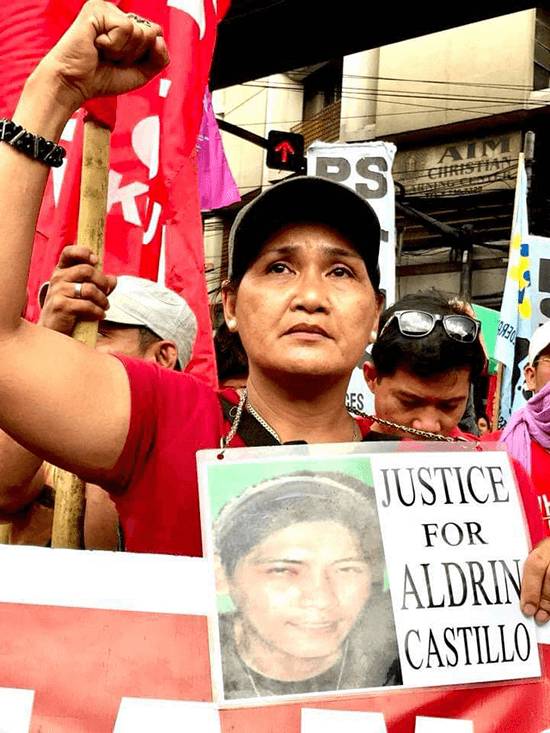
Beyond this, Silingan women have also found a community among each other. In a world that seemed to have easily forgotten the atrocities of the drug war, they share their strength through remembering.
“Dito lang ako nakapag-open. Noong unang beses ko nga ma-interview ng media, hindi nila akalain. Sabi nila, ‘Umiiyak ka pala, Ate Sha,’” recalls Tayactac. Meanwhile, Castillo says: “Excited ako na makatrabaho ‘yung mga kasama ko (at) sa mga customer na papasok. Iniisip ko, sino naman kaya makakakwentuhan ko?”
“Bukod pa sa livelihood, nakilala ko rin ‘yung ibang pamilya na hindi naabot ng mga (grupong tumutulong sa amin). Iba-iba man ang katuwiran namin minsan, meron pa rin kaming pinag-uugatan na pangyayari,” Castillo shares. “Iisa 'yung goal namin: hustisya. 'Yun ang nagbibigkis sa amin, kung bakit kami nagsasama-sama.”
As their call for justice continues, the head barista says she finds hope in numbers: “Sabi nga ng iba, ‘pag marami na nanalangin, mas maririnig. Pero kung iilan lang, baka hindi marinig,” says Tayactac.
Relying on pity does not sit well with her, and thus they strive to deliver great coffee to their customers each time. She refuses to be victimized forever. “Sinasabi ko nga sa kanila, hangga't maaari, kailangan nating kayanin. Hindi pwedeng lagi na lang tayong lugmok.”
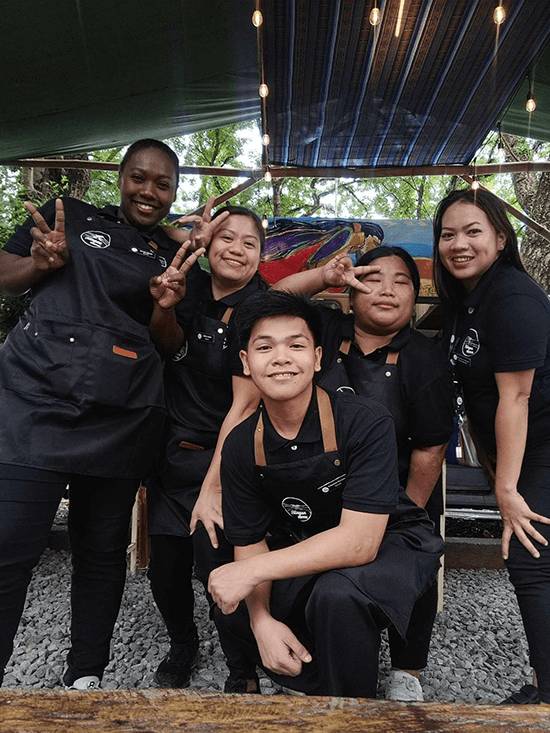
Looking ahead, they want to continue holding Duterte and his accomplices accountable for the unjust murder spree, while the International Criminal Court continues its investigation. Furthermore, after almost eight years, policemen involved in the killing of the husband and son of a Silingan barista were finally convicted of homicide by the Office of the Ombudsman.
Still, they insist on not moving on, but moving forward. “‘’Pag nasa Silingan kami, nakikita namin yung kalakasan namin. Nakakaya naming tumindig,” Castillo shares. “Kaya may nakagraduate na, may gagraduate pa. Sa kabila ng pagpatay ng gobyerno sa kaanak namin, dito sa Silingan nakikita namin ang pag-asa. Nagbubuklod kami para sa hustisya, habang unti-unti naming binbuo muli ang aming mga buhay.”


